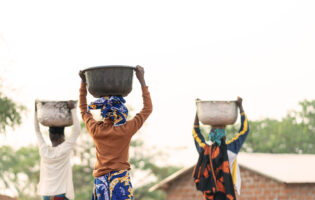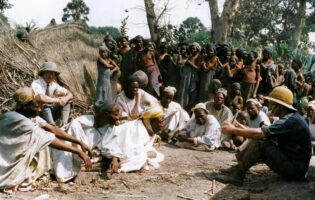Jesus urged his followers to accept their calling as messengers of the gospel without using analytic language. Scripture makes no reference to his request for an impact study or bar graphs for next year’s annual report. Jesus spoke simply as our shepherd, detailing the “what” of the Great Commission.
So how do we measure the success of those working in full-time missions today? How do we avoid inadvertently dehumanizing Jesus’ commission and reducing God’s children to data points? These questions flitted around my mind after a recent conversation I had with a friend. I was trying to explain what I do as a storyteller for SIM’s Faithful Witness initiative. This friend works in philanthropy, so she understood the overarching concept of sharing “results” with funders and supporters. But she had a hard time grasping the complexities of reporting on relationship-building with the unreached.
I resonated with her confusion. While we may be “fishers of men,” tallying lives “caught” in our nets and presenting a headcount to Jesus upon our arrival in heaven has never been the end goal. No, scripture says we shall know followers of Jesus by their fruit.
I don’t have a definitive guide to identifying biblical fruit, but I think as believers, we do sense it when we see it. To share the gospel is to accept that the true mark of impact may come years, and even decades, after we have joined a community.
In the Ethiopian Kale Heywet Church (EKHC), fruit has been ripening for 100 years. God is reaping a plentiful harvest because seeds of faithfulness were planted in the 1920s, when SIM missionaries called Ethiopia home. For them, fruit flourished with 75 newly baptised believers – which is important, not because they numbered 75, but because they were zealous and ready to be sent themselves.
In 1937, war broke out in southern Ethiopia, and the SIM missionaries were evacuated. When they returned to Ethiopia in 1941, they discovered the initial 75 had multiplied and become thousands. Masses were pursuing Jesus, despite their having little formal biblical training.
The following years could be described in the words of Eugene Peterson as “a long obedience in the same direction.” Steadfast Christians preached the good news of our steadfast God, resulting in a resilient EKHC that managed to survive persecution.the persecution and martyrdom of Ethiopia’s new Marxist regime. The ‘90s ushered in a different government that permitted religious freedom, and since then, the EKHC has continued to grow. Their ministry affirms that Ccaring for seeds is of greater significance than counting them; well-tended fruit begets more fruit.
Fast-forward a few decades, and we’re here, in 2020, as Kirubel (Mobiliser for SIM East Africa), tells me about the EKHC’s development of global missions. “The church is doing a tremendous job in their local community and in different parts of regional Ethiopia. SIM is there to facilitate and send more missionaries, so there are more peoples being exposed to the gospel. It requires lots of different operations and unity to make that happen.”
That unity is apparent in a new Faithful Witness team comprised ofa group of four Ethiopian families from the EKHC. They’re partnering with SIM SIM’s Faithful Witness Initiative, leaving their homes and their church to disciple the Fulani people of Nigeria. These families will be the first Ethiopians to bring the gospel to this part of Nigeria.
Kirubel says they feel what can best be translated as “a fire starting off” with passion to reach people globally. “We’re overwhelmed that they’d say, ‘This sounds crazy, but let’s just do it and trust God,” he shares. “It’s overwhelming sometimes how much the missionaries are committed to serve the Lord. It was an emotional moment for us.”
Of course, the COVID-19 outbreak has halted relocation plans for this team. One family was set to move a few months ago, already packed and renting out their Ethiopian home. Now they wait, along with their fellow mission workers, for news of lifted travel restrictions. Until then, they continue living and serving together in their small village community.
It could be a long time before a glossy ten-page-spread in an annual report heralds news of a revival among the Fulani people. But the EKHC’s legacy is one of planting and abiding. Because of the Ethiopians’ spiritual fruit, the Fulani will meet people who love Jesus. Not only is this success, it is the kind of kingdom work that blesses the Father and leads him to say: “Well done, my good and faithful servant.” And perhaps, 100 years from now, we will hear of Fulani believers going out and sharing the gospel because of God’s anointing on an SIM team that once called Nigeria home.




